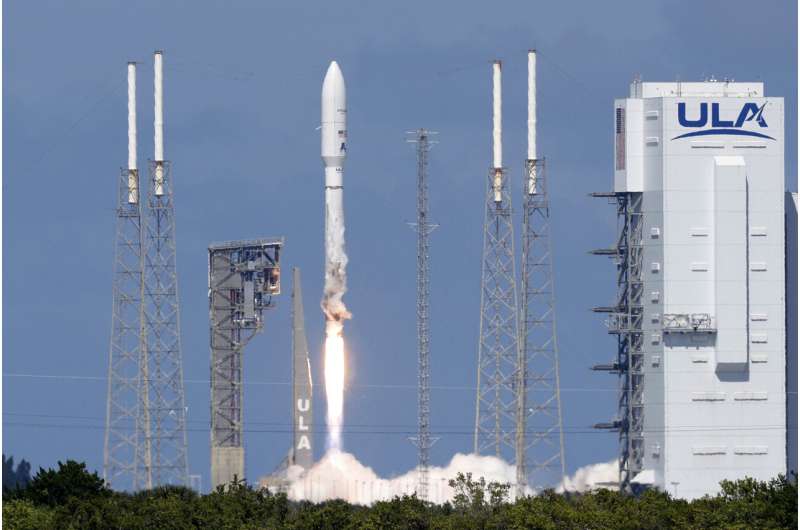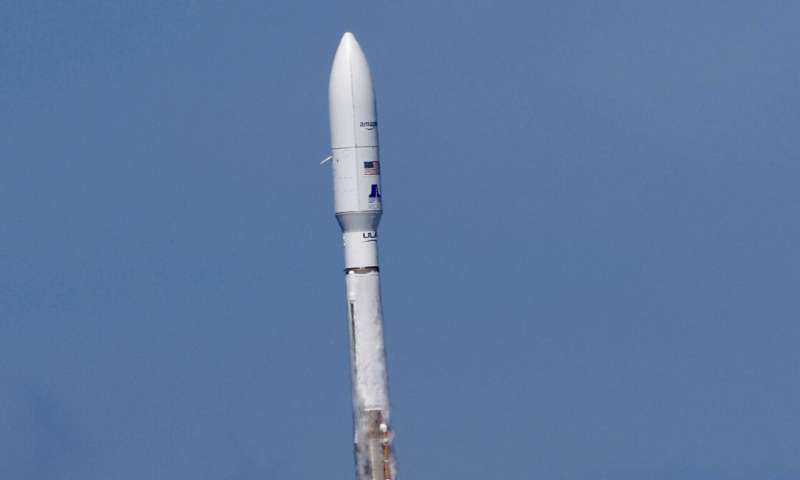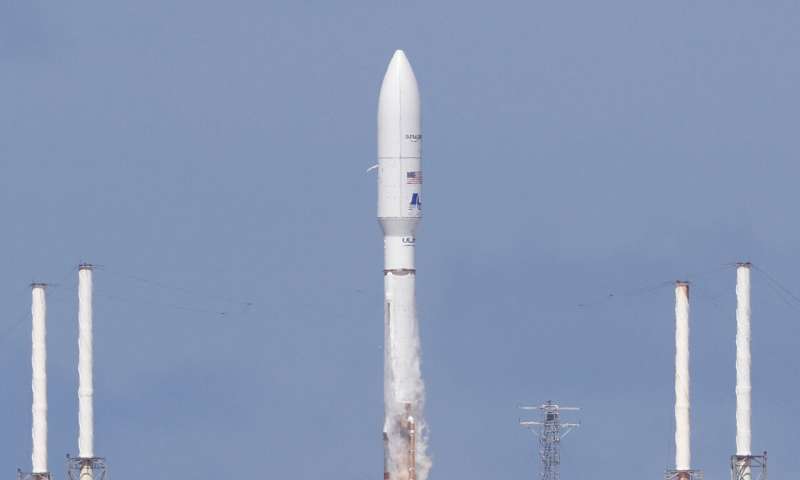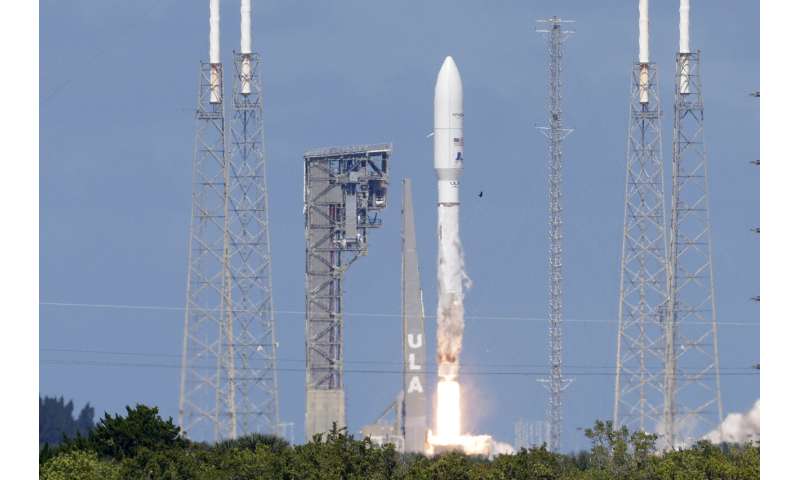
Amazon launched the first test satellites for its planned internet service on Friday as a rival to SpaceX’s broadband network.
United Launch Alliance’s Atlas V rocket blasted off with the pair of test satellites, kicking off a program that aims to improve global internet coverage with an eventual 3,236 satellites around Earth.
Amazon plans to begin offering service by the end of next year.
Elon Musk’s SpaceX has a huge head start over Amazon and its founder Jeff Bezos, who has his own rocket company, Blue Origin.
SpaceX flew its first test Starlink satellites in 2018 and the first operational satellites in 2019. It has since launched more than 5,000 Starlinks from Florida and California, using its own Falcon rockets.
Europe’s Eutelsat OneWeb also is launching internet satellites, with around 600 in orbit.
Amazon originally agreed to put the satellites on the debut launch of ULA’s Vulcan rocket. But with the Vulcan grounded by problems until at least the end of this year, Amazon switched to the long-established Atlas V.
-
![Amazon launches test satellites for its planned internet service to compete with SpaceX]()
An Atlas 5 rocket with the Project Kuiper Protoflight spacecraft lifts off from Space Launch Complex-41 at Cape Canaveral Space Force Station in Cape Canaveral, Fla., Friday, Oct. 6, 2023.Credit: AP Photo/Terry Renna
-

An Atlas 5 rocket with Amazon’s Project Kuiper Protoflight spacecraft lifts off from Space Launch Complex-41 at Cape Canaveral Space Force Station in Cape Canaveral, Fla., Friday, Oct. 6, 2023.Credit: AP Photo/Terry Renna
-
![Amazon launches test satellites for its planned internet service to compete with SpaceX]()
An Atlas 5 rocket with Amazon’s Project Kuiper Protoflight spacecraft lifts off from Space Launch Complex-41 at Cape Canaveral Space Force Station in Cape Canaveral, Fla., Friday, Oct. 6, 2023.Credit: AP Photo/Terry Renna
-

An Atlas 5 rocket with Amazon’s Project Kuiper Protoflight spacecraft lifts off from Space Launch Complex-41 at Cape Canaveral Space Force Station in Cape Canaveral, Fla., Friday, Oct. 6, 2023.Credit: AP Photo/Terry Renna
-
![Amazon launches test satellites for its planned internet service to compete with SpaceX]()
Crowds on the beach at Lori Wilson Park in Cocoa Beach, Fla. watch as the launch of a ULA Atlas V rocket with the Project Kuiper Protoflight mission for Amazon onboard launched from Launch Complex 41 at Cape Canaveral Space Force Station, Friday Oct. 6, 2023. Credit: Malcolm Denemark/Florida Today via AP
When licensing the program, the Federal Communications Commission stipulated that at least half of the planned satellites be operating by 2026 and all of them by 2029.
Amazon has reserved 77 launches from ULA, Blue Origin and Europe’s Arianespace to get everything up.
© 2023 The Associated Press. All rights reserved. This material may not be published, broadcast, rewritten or redistributed without permission.
Citation:
Amazon launches test satellites for its planned internet service to compete with SpaceX (2023, October 7)
retrieved 7 October 2023
from https://techxplore.com/news/2023-10-amazon-satellites-internet-spacex.html
This document is subject to copyright. Apart from any fair dealing for the purpose of private study or research, no
part may be reproduced without the written permission. The content is provided for information purposes only.
Stay connected with us on social media platform for instant update click here to join our Twitter, & Facebook
We are now on Telegram. Click here to join our channel (@TechiUpdate) and stay updated with the latest Technology headlines.
For all the latest Technology News Click Here
For the latest news and updates, follow us on Google News.



